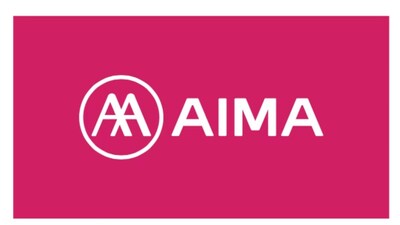Fintech PR
Riverside Expands Dastex Group with pure11 Acquisition

Third Add-on Enhances Product Portfolio and Market Reach in the DACH Region
CLEVELAND, Oct. 2, 2024 /PRNewswire/ — The Riverside Company (Riverside), a global investment firm focused on the smaller end of the middle market, announced an affiliated European fund has signed a definitive agreement to invest in pure11 GmbH (pure11), a German distributor of consumables for cleanrooms and other controlled environments, from its founders. The investment is the third add-on in 16 months to Riverside’s portfolio company Dastex Group GmbH (Dastex), a specialized cleanroom garment and consumables distributor in Europe. Closing of the deal is subject to customary approvals by the competent regulatory authorities.
Founded in 2007, pure11, through third-party brand distribution as well as its proprietary brand CELOS®, offers a broad product portfolio including gloves, wipes, disposable garments, and swabs. The company, headquartered in Grünwald, Germany, primarily serves customers from the pharmaceutical and semiconductor industries, but also optical glass, automotive, and pharmacies.
Damien Gaudin, Partner at Riverside Europe who led the deal, commented: “With pure11, Dastex continues its expansion strategy in Europe, acquiring a sizeable independent cleanroom consumables player in the DACH region. The company has established a robust market presence through its experienced commercial sales force and strategic distribution partners. This success is further bolstered by maintaining strong relationships with suppliers and leveraging its strong technical expertise. Besides strengthening Dastex’s market positioning in the DACH region, the addition of pure11 will further improve the product offering of the Group, diversify end-market exposure, and enable Dastex to integrate a strong management team in place at pure11.”
The owner and Managing Director of pure11, Julian Kropp, added: “I am incredibly proud of the pure11 team’s success over the past years. The strategic combination with Dastex is the right move for pure11, which will enable us to reach ambitious growth targets even faster by leveraging the combined strengths of two top notch companies. The entire management team and I are excited to start the next chapter, as there couldn’t be a better partner sharing our values of strong commitment, excellence in services, and product innovation. We are convinced that our customers, suppliers, and employees will benefit significantly from this new partnership.”
Linda Vereycken, CEO of Dastex, stated: “Alongside the rest of our management team, I am delighted to announce the strategic acquisition of pure11, which promises mutual benefits and growth for the Group. Pure11 has rapidly built its market position in Germany and neighboring countries. Acquiring pure11 consolidates the strengths of two complementary firms, enhancing our cleanroom expertise and services. This move is a significant stride toward establishing our position as one of the leading cleanroom specialists in the EU, with the goal of becoming the most trusted partner for our clients. This acquisition highlights Dastex’s ability to identify opportunities that align with our values, vision, and European expansion strategy.”
Riverside acquired Dastex and its first add-on Vita Verita mid-2023. Continuing its buy-and-build strategy, the company added AET, a leading independent player in Norway, in April 2024. The acquisition of pure11 marks another step towards building a leading European platform in cleanroom contamination control, well-positioned to grow organically and via acquisitions. Dastex serves the resilient and growing cleanroom industry, helping customers in pharmaceuticals, life sciences, semiconductor and other high-tech industries to meet ever stricter quality and regulatory standards.
Working with Gaudin on the deal for Riverside were Vice Presidents Maxime Meulemeester and Nicola Tomaschko, Senior Associate Sebastiaan Pauwels and Senior Legal Counsel Peter Parmentier.
The Riverside Company is a global investment firm focused on being one of the leading private equity and flexible capital options for business owners and portfolio company employees at the smaller end of the middle market by seeking to fuel transformative growth and create lasting value. Since its founding in 1988, Riverside has made more than 1,000 investments. The firm’s international private equity and flexible capital portfolios include more than 140 companies.
Riverside Europe is an integral part of the Riverside’s broad global network and has been active in Europe since 1989. Riverside believes a truly global presence provides insight into local conditions, culture and business practices, making team members better business partners. For more information, visit: www.riversidecompany.com.
|
Contact: Keith Davisson Marketing Consultant The Riverside Company +1 216 -535 -1777 |
Henrietta Hirst Partner Hydra Strategy +44 7880 742 375 |
Logo – https://mma.prnewswire.com/media/2521175/Riverside_Company_logo.jpg
![]() View original content:https://www.prnewswire.co.uk/news-releases/riverside-expands-dastex-group-with-pure11-acquisition-302264736.html
View original content:https://www.prnewswire.co.uk/news-releases/riverside-expands-dastex-group-with-pure11-acquisition-302264736.html

Fintech PR
Wahed appoints Khalid Al Jassim as Executive Chairman of Wahed MENA to help guide the strategic growth of Wahed in the region

DOHA, Qatar, Nov. 24, 2024 /PRNewswire/ — Wahed, a global Shariah-compliant fintech, has appointed Khalid Al Jassim as Chairman of Wahed MENA.
On this appointment, Khalid commented, ”I am excited to guide Wahed’s growth in the region. Wahed’s mission of furthering Islamic Finance is one I resonate with deeply and I look forward to supporting its growth ambitions.”
Khalid has over twenty five years of investment banking and corporate advisory experience gained with some of the most innovative and groundbreaking institutions in the world.
His career spans leading firms including SABIC, Arthur Anderson and Arcapita Bank in Bahrain, where he was instrumental in making it into one of the PE powerhouses in the region. His responsibilities started in the earlier years with establishing the Investment Placement Team and transforming it into one of the most robust teams in the industry. At the time that Khalid left Arcapita to build his personal business, he was an Executive Director. Today he is Chairman of Afkar Vision, a private advisory house specialized in mergers and acquisitions with offices in Manama, Dubai and Riyadh.
As well as being one of the earliest investors in Wahed, he is currently Chairman of the Audit Committee and Board Member at Bahrain Islamic Bank, the 4th oldest Islamic Bank in the World and Board Member at SICO Bank and SICO Capital in Saudi, an $8bn asset manager in the region.
Mohsin Siddiqui, Wahed CEO said, “We are delighted to announce Khalid’s appointment. His unique understanding of the financial landscape in the MENA region is unparalleled and we are excited to bring this expertise in continuing to grow our presence in the region.”
About Wahed
Founded in 2015, Wahed is a financial technology company that is advancing financial inclusion through accessible, affordable, and values-based investing. The company has made significant inroads in the world Shariah compliant investing by creating an easy-to-use digital platform that provides a suite of Shariah compliant investing products including managed portfolios and venture and real estate investments. Wahed caters to over 400,000 customers globally and manages over $ 1 billion in assets.
For more information, visit: www.wahed.com
Photo – https://mma.prnewswire.com/media/2566076/Wahed_MENA_Khalid_Al_Jassim.jpg
![]() View original content:https://www.prnewswire.co.uk/news-releases/wahed-appoints-khalid-al-jassim-as-executive-chairman-of-wahed-mena-to-help-guide-the-strategic-growth-of-wahed-in-the-region-302314779.html
View original content:https://www.prnewswire.co.uk/news-releases/wahed-appoints-khalid-al-jassim-as-executive-chairman-of-wahed-mena-to-help-guide-the-strategic-growth-of-wahed-in-the-region-302314779.html

Fintech PR
Qatar Development Bank announces strategic investment in global Islamic FinTech, Wahed

DOHA, Qatar, Nov. 24, 2024 /PRNewswire/ — Qatar Development Bank (QDB) announces a strategic investment in Wahed, a global Shariah-compliant fintech.
Wahed currently manages over $1 billion in assets and has attracted over 400,000 clients worldwide. The company is built on the principles of democratizing access to financial services and offers clients access to Shariah-compliant investments in its mobile app. Wahed removes the barriers to sophisticated investment management services that have been traditionally reserved for high-net-worth investors.
Khalid Al Jassim, Executive Chairman of Wahed MENA said: ‘We are delighted to welcome our new shareholders, QDB. We believe Qatar is fully aligned with our mission in creating a technology-first Islamic finance leader that unlocks a financial ecosystem free from Riba. We look forward to supporting the Qatar National Vision 2030 of becoming a leading knowledge-based economy.
Ali Rahimtula, Partner at Cue Ball Capital said: “Qatar Development Bank’s strategic investment is a clear signal of the faith the industry has in Wahed and its ability to create the future of Islamic Finance.”
About Wahed
Founded in 2015, Wahed is a financial technology company that is advancing financial inclusion through accessible, affordable, and values-based investing. The company has made significant inroads in the world Shariah compliant investing by creating an easy-to-use digital platform that provides a suite of Shariah compliant investing products including managed portfolios and venture and real estate investments. Wahed caters to over 400,000 customers globally and manages over $ 1 billion in assets.
For more information, visit: www.wahed.com
About Qatar Development Bank
Qatar Development Bank’s mission is to advance the economic and innovation development cycle of Qatar, supporting and contributing to the nation’s economic diversification. As well as a focus on the development of Qatar’s private sector, QDB is a powerful catalyst for socio-economic development in the country, empowering the local economy and bettering living standards.
For more information, visit: https://www.qdb.qa/
Photo – https://mma.prnewswire.com/media/2566075/Qatar_Development_Bank_Announcement.jpg
![]() View original content:https://www.prnewswire.co.uk/news-releases/qatar-development-bank-announces-strategic-investment-in-global-islamic-fintech-wahed-302314778.html
View original content:https://www.prnewswire.co.uk/news-releases/qatar-development-bank-announces-strategic-investment-in-global-islamic-fintech-wahed-302314778.html

Fintech PR
China’s AIMA brand electric motorbike is now in Bangladesh

DHAKA, Bangladesh, Nov. 23, 2024 /PRNewswire/ — With the popularity of electric vehicles in Bangladesh, the globally renowned AIMA brand has also arrived in Bangladesh. The esteemed DX Group has brought the AIMA F-626 to customers. This environmentally friendly battery-operated electric motorbike has already been approved by the Bangladesh Road Transport Authority (BRTA) now.
In light of the increasing popularity of electric motorcycles in the country, the internationally-leading brand AIMA has entered the market. By the end of 2023, AIMA electric two-wheelers had established a presence in over 50 countries worldwide, with 11 global production bases, including overseas factories in Indonesia and Vietnam. In 2022, AIMA collaborated with Rob Janoff, the designer of the Apple logo, to refresh the brand’s VI system with a youthful and fashionable image. In 2023, AIMA teamed up with PANTONE, the global authority in color expertise, to create the trending color of the year. As an industry leader, AIMA spearheads the electric two-wheeler sector and showcases the prowess of a leading electric two-wheeler brand on a global scale. As of March 31, 2024, AIMA’s total electric two-wheeler sales had reached 80 million units, earning certification from Frost & Sullivan, a globally recognized business growth consulting firm, as the “Global Leading Electric Two-wheeler Brand”.
Over the years, AIMA has always been a product trendsetter in the electric two-wheeler sector. As of March 31, 2024, the total sales volume of AIMA electric two-wheelers reached 80 million, and Frost & Sullivan, a world-renowned market consulting company, awarded AIMA with the market status certification of the “Global Leading Electric Two-wheeler Brand (by Sales)”.
AIMA adhere to the customer-centered product philosophy and technologies that support long-term innovation and breakthroughs. We believe that the efficiency and modern technology of the AIMA F-626 will present an excellent alternative means of communication for our customers.


Photo – https://mma.prnewswire.com/media/2557788/image.jpg
Photo – https://mma.prnewswire.com/media/2565550/Image2.jpg
Logo – https://mma.prnewswire.com/media/2449955/5026987/AIMA_Technology_Logo.jpg
![]() View original content:https://www.prnewswire.co.uk/news-releases/chinas-aima-brand-electric-motorbike-is-now-in-bangladesh-302314773.html
View original content:https://www.prnewswire.co.uk/news-releases/chinas-aima-brand-electric-motorbike-is-now-in-bangladesh-302314773.html

-

 Fintech4 days ago
Fintech4 days agoFintech Pulse: Industry Updates, Innovations, and Strategic Moves
-

 Fintech3 days ago
Fintech3 days agoFintech Pulse: Daily Industry Brief – A Dive into Today’s Emerging Trends and Innovations
-

 Fintech PR4 days ago
Fintech PR4 days agoROLLER Releases 2025 Attractions Industry Benchmark Report, Unveiling Key Trends and Revenue Strategies
-

 Fintech PR4 days ago
Fintech PR4 days agoTAILG Represents the Industry at COP29, Advancing South-South Cooperation with Low-Carbon Solutions
-

 Fintech6 days ago
Fintech6 days agoFintech Pulse: Navigating Expansion, Innovation, and Sustainability
-

 Fintech5 days ago
Fintech5 days agoFintech Pulse: Milestones, Partnerships, and Transformations in Fintech
-

 Fintech PR2 days ago
Fintech PR2 days agoAlkira Ranked 25th Fastest-Growing Company in North America and 6th in the Bay Area on the 2024 Deloitte Technology Fast 500™
-

 Fintech PR4 days ago
Fintech PR4 days agoThe CfC St. Moritz Announces New Speakers from BlackRock, Binance, Bpifrance, Temasek, PayPal, and More for Upcoming 2025 Conference




